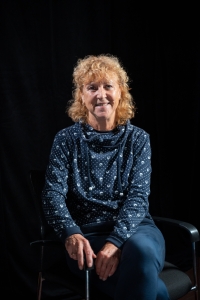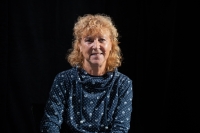As editors working in the period of normalization, we felt what could be published and what could not
Anna Világiová, née Benediková, was born on February 11, 1956 in Liptovský Mikuláš. Both of her parents - mother Anna, unmarried Fiačanová, and father Dezider worked in the field of gastronomy and hotel management in the well-known Liptov hotels Hotel Kriváň and Hotel Európa. Until the age of 12, Anna lived with her family in Liptovský Mikuláš, where she also attended elementary school in Palúdzka. In 1967, she and her family moved to Bratislava, where she continued her studies at Thelmanova Elementary School. After failing to get into the prestigious Metodova gymnasium in Bratislava due to a bad staff report and lack of free capacity, she started studying at the gymnasium in Pezinok, where she commuted daily. As a high school student, she spent summer vacations with her sister in the south of Italy during the socialist era. After completing her high school studies, she completed a two-year additional study at the Central Library School in the years 1975 – 1977, where she studied archival science. She found her first job in the editorial office of the weekly newspaper Express, where she took up the position of archivist-documentarian. As a researcher and editor of foreign news, she regularly encountered censorship in the editorial office during the period of normalization. In 1988, she married Attila Világi, with whom she has two children – son Lukáš and daughter Simona. As a result of the post-revolutionary reorganization of the weekly newspaper Express, she had to end her maternity leave early and join the newly formed editorial office of International Express. After the demise of the weekly International Express, she worked for a while as an interpreter in the private sector. In 2007, she started a business specializing in the import of designer resin flower pots from Italy. He is still engaged in this activity today.

